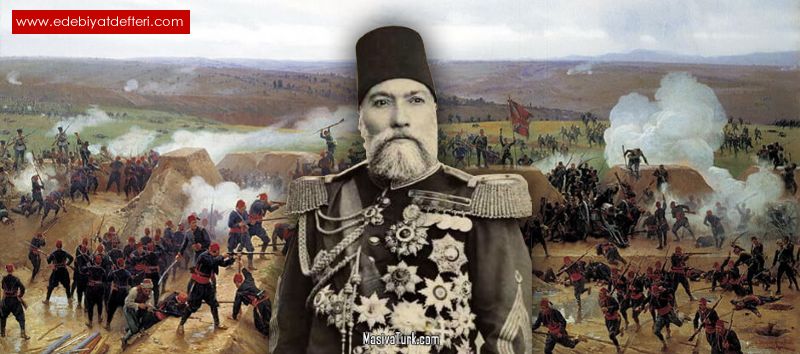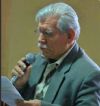Övünmeyiniz! Hem topraktan yaratılmış, hem de toprağa dönünce kendisini kurtların böceklerin yiyeceği insanın övünmesi neye yarar. HZ. EBUBEKİR
Paylaş
TUNA NEHRİ - AKMA FİLİSTİN GAZZE'DEN ÇIKMA
nejat hoca
5,0 / 21 kişi ·24 beğenme · 7 yorum · 900 okunma
 TUNA NEHRİ - AKMA FİLİSTİN GAZZE'DEN ÇIKMAŞiirin hikayesini görmek için tıklayın "Akma Tuna" filmi, bir yüzbaşının esir aldığı Çal Hasan’ın hikayesini anlatır. Çal Hasan, ağır işkencelere maruz kaldıktan sonra hapis olduğu kaleden kaçmayı başarır. Padişahın emrini aldıktan sonra, serhadda bulunan Genç Osman’ı bulup Estergon’da Türk sancaklarını dalgalandırmak üzere yola koyulur ¹.
Bu hikaye, Türk Kurtuluş Savaşı’nın destanlarından biridir. Kahramanlar yürüdü, zaferlere koştu, destanlar yazıldı. Bu topraklarda bozkırda açan bir gül oldu. Sazlar çaldı, dağlar yankılandı. Akma Tuna, bu hikayesi bir asır öncesinden gelen bir destandır. "Tuna Nehri Akmam Diyor" hikayesi, Osmanlı İmparatorluğu’nun son dönemlerinde yaşanan olaylardan biridir. Bu hikaye, Plevne savunmasının kahramanı Gazi Osman Paşa’nın askerlerine verdiği bir sözü anlatır. Söz konusu söz, "Tuna nehri akmam diyor, etrafımı yıkmam diyor" şeklindedir ¹². The text you selected is a poem or song that praises the Tuna river, which is also known as the Danube river. It is one of the longest rivers in Europe and flows through many countries. The poem or song also mentions the history of wars and sacrifices that took place along the river. Here is an explanation for each important point mentioned in the text: - **Akma Tuna, tarih şehitleriyle dolu**: This means "Don’t flow Tuna, history is full of martyrs". It is a refrain that repeats throughout the poem or song. It expresses the sorrow and respect for the people who died fighting for their homeland along the river. - **Anadolunun bağımsızlık ateşiyle kavruldu**: This means "Anatolia was scorched by the fire of independence". It refers to the Turkish War of Independence (1919-1923), which was fought against the occupying forces of the Allies after World War I. The war resulted in the establishment of the Republic of Turkey . - **Kahramanlar yürüdü, zaferlere koştu**: This means "Heroes walked, ran to victories". It praises the courage and determination of the Turkish soldiers who fought for their freedom and sovereignty. - **Destanlar yazıldı, bu topraklarda bozkırda açan bir gül oldu**: This means "Epics were written, a rose bloomed in this land in the steppe". It implies that the war was a heroic and glorious event that created a new nation and a new identity for the Turkish people. - **Tuna Nehri sükut içinde, akar gönül rüyasında**: This means "Tuna river flows silently, in the dream of the heart". It suggests that the river is a witness and a symbol of the history and culture of the Turkish people. - **Osman Paşanın komutasında durur kıyılar**: This means "The shores stand under Osman Pasha’s command". It refers to Osman Nuri Pasha (1832-1900), a Turkish general who defended Plevna (now Pleven) in Bulgaria against the Russian army during the Russo-Turkish War (1877-1878) . He is regarded as a national hero and a military genius by Turks . - **Yıkılmam diyor, kenarını korur, cesur duruşunda**: This means "He says I will not fall, he protects his edge, in his brave stance". It describes Osman Pasha’s resilience and bravery in defending Plevna against overwhelming odds. - **Pilevneden yankılanır kahramanlık destanı**: This means "The epic of heroism echoes from Plevna". It emphasizes the significance and impact of Osman Pasha’s defense of Plevna, which delayed the Russian advance and inspired other Turkish forces . - **Düşman Tunayı aşmaya çalışır, bilenmiş kılıçtan**: This means "The enemy tries to cross Tuna, from a sharpened sword". It depicts the fierce battle between the Turkish and Russian armies along the Tuna river. - **Osman Paşanın gücü, tarihe not düşen bir destanı yazara**: This means "Osman Pasha’s power, writes an epic that notes history". It credits Osman Pasha’s leadership and skill for creating a historical legacy that is remembered and honored by Turks. - **Tuna sularında akar kahramanlık hikayesi**: This means "The story of heroism flows in Tuna waters". It repeats the idea that the river is a witness and a symbol of the Turkish history and culture. - **Pilevneden Tunaya yazılan bu destan**: This means "This epic written from Plevna to Tuna". It summarizes the main theme of the poem or song, which is about Osman Pasha’s defense of Plevna and its impact on Turkish history. - **Osman Paşanın izinde yürüyen milletin gururunu taçlandırır**: This means "It crowns the pride of the nation that walks in Osman Pasha’s footsteps". It expresses the admiration and respect for Osman Pasha and his legacy among Turks. - **Sazlar çaldı, dağlar yankılandı Akma Tuna**: This means "Sazs played, mountains echoed Don’t flow Tuna". It adds a musical element to the poem or song, as saz is a traditional Turkish string instrument . It also repeats the refrain that shows sorrow and respect for the martyrs along the river. - **Kurtuluş Savaşının destanıdır bu hikayesi bir asır öncesinden**: This means "This story is the epic of the War of Independence from a century ago". It connects the poem or song to the Turkish War of Independence, which was fought against the occupying forces of the Allies after World War I. It suggests that Osman Pasha’s defense of Plevna was a precursor and an inspiration for the later war. - **Mustafa Kemal önderlik etti, millet birlik oldu**: This means "Mustafa Kemal led, the nation became united". It refers to Mustafa Kemal Atatürk (1881-1938), the founder and first president of the Republic of Turkey. He was the leader of the Turkish War of Independence and is regarded as the father of modern Turkey . He unified and modernized the Turkish nation after the collapse of the Ottoman Empire . - **Yenilmez ordumuz, düşmana geçit vermedi, durdu**: This means "Our invincible army, did not give way to the enemy, stopped". It praises the strength and success of the Turkish army in defeating the invading forces and securing Turkey’s independence and sovereignty. - **Akıp giden Tuna, özgürlüğün simgesi**: This means "Flowing Tuna, the symbol of freedom". It repeats the idea that the river is a witness and a symbol of the Turkish history and culture, especially their struggle for freedom and independence. - **Topraklarını savunurken, kahramanlarla dolu bu hikaye**: This means "This story is full of heroes, while defending their lands". It summarizes the main message of the poem or song, which is about honoring and remembering the heroes who fought and died for their homeland along the Tuna river. - **Çanakkalede destan yazdı şanlı milletimiz**: This means "Our glorious nation wrote an epic in Çanakkale". It refers to another historical event that is related to the Turkish War of Independence, which is the Battle of Gallipoli (1915-1916). It was a campaign during World War I in which Turkish forces defended the Gallipoli peninsula (also known as Çanakkale) against a joint British-French-Australian-New Zealand invasion. It was a major victory for Turkey and a turning point in Turkish history . - **Geliboluda, Anadoluda, yankı buldu adı sevdamızın**: This means "In Gallipoli, in Anatolia, it echoed the name of our love". It implies that the Battle of Gallipoli and the Turkish War of Independence were expressions of love for Turkey and its people. It also suggests that these events resonated throughout Turkey and its history. I hope this explanation helps you understand the text better. If you have any other questions, please let me know. Lakin, "Akma Tuna" hikayesi ile karıştırılmamalıdır. "Akma Tuna" filmi, bir yüzbaşının esir aldığı Çal Hasan’ın hikayesini anlatır. Çal Hasan, ağır işkencelere maruz kaldıktan sonra hapis olduğu kaleden kaçmayı başarır. Padişahın emrini aldıktan sonra, serhadda bulunan Genç Osman’ı bulup Estergon’da Türk sancaklarını dalgalandırmak üzere yola koyulur ³.
...
Akma Tuna, tarih şehitleriyle dolu, Anadolu’nun bağımsızlık ateşiyle kavruldu. Kahramanlar yürüdü, zaferlere koştu, Destanlar yazıldı, bu topraklarda bozkırda açan bir gül oldu. Tuna Nehri sükut içinde, akar gönül rüyasında, Osman Paşa’nın komutasında durur kıyılar. Yıkılmam diyor, kenarını korur, cesur duruşunda, Ünü büyük Osman Paşa, vatanı için canını verir. Pilevne’den yankılanır kahramanlık destanı, Osman Paşa’nın adı, gönüllerde bir efsane. Düşman Tuna’yı aşmaya çalışır, bilenmiş kılıçtan, Osman Paşa’nın karargahından gözü dönmüş, cesur bir duruş. Karakollar çatırdayan ateşle aydınlanır, Osman Paşa’nın ordusu sarsılmaz bir duvar gibi. Beş bin top birden patlar, gökyüzünde zafer havası, Osman Paşa’nın gücü, tarihe not düşen bir destanı yazara. Tuna sularında akar kahramanlık hikayesi, Osman Paşa’nın gözü dönmüş düşmanlara geçit verdiği yok. Pilevne’den Tuna’ya yazılan bu destan, Osman Paşa’nın izinde yürüyen milletin gururunu taçlandırır. Sazlar çaldı, dağlar yankılandı Akma Tuna, Kurtuluş Savaşı’nın destanıdır bu hikayesi bir asır öncesinden. Mustafa Kemal önderlik etti, millet birlik oldu, Yenilmez ordumuz, düşmana geçit vermedi, durdu. Akıp giden Tuna, özgürlüğün simgesi, Topraklarını savunurken, kahramanlarla dolu bu hikaye. Çanakkale’de destan yazdı şanlı milletimiz, Gelibolu’da, Anadolu’da, yankı buldu adı sevdamızın. Akma Tuna, sularında yıkanan kahramanlar, Düşmana direnen, göğsünü siper eden yiğitler. Şanlı bayrağımız dalgalanır gökyüzünde, Akıncılar gibi fetheder her kaleyi, zafere uzanan bir özgürlük türküsüdür. Akma Tuna, Türk’ün destanı yazıldı senin sularında, Vatan sevgisiyle dolup taşan yüreklerde. Kahramanlar anlatır, gözlerimiz yaşarır, Tuna’dan başlayan, tüm milletin özgürlük öyküsüdür bu zafer. Akma Tuna, tarih boyunca tanıklık etti cesarete, Mustafa Kemal’in önderliğinde yazıldı bu kahramanlık kitabı. Milletin inancıyla yoğruldu bu destan, Akıncılar gibi savundu her karış toprağı, bir özgürlük destanı oldu bu anlatılan. BU ŞİİRİ GAZZEDE CAN VEREREK ŞEHIT OLAN,CESARETLERİYLE DESTAN YAZANTŪM FİLİSTİNLİLER İÇİN KALEME ALDIM. BİR OSMAN PAŞA DAHA BEKLENİR TARİHTEN,KADERDEN... A. Nejat Alperen |
Şiiri Değerlendirin
(c) Bu şiirin her türlü telif hakkı şairin kendisine ve/veya temsilcilerine aittir.
Şiirlerin izin alınmadan kopyalanması ve kullanılması 5846 sayılı Fikir ve Sanat Eserleri Yasasına göre suçtur.
Şiirlerin izin alınmadan kopyalanması ve kullanılması 5846 sayılı Fikir ve Sanat Eserleri Yasasına göre suçtur.
TUNA NEHRİ - AKMA FİLİSTİN GAZZE'DEN ÇIKMA şiirine yorum yap
Okuduğunuz şiir ile ilgili düşüncelerinizi diğer okuyucular ile paylaşmak ister misiniz?
TUNA NEHRİ - AKMA FİLİSTİN GAZZE'DEN ÇIKMA şiirine yorum yapabilmek için üye olmalısınız.
Üyelik Girişi Yap Üye Ol
Üyelik Girişi Yap Üye Ol
Yorumlar
Duyarlı yüreğiniz var olsun üstadım inşaAllah çıkar bir Osman Paşa yeniden emeğinize yüreğinize kaleminize sağlık Saygı ve selamlarımla
Bu yoruma 1 cevap yazılmış.
Şiirimi beğeniyle okuduğunuz ve yorum yaptığınız için size çok teşekkür ediyorum. Sağolun,İyiki varsınız.
Bu sözleriniz beni çok mutlu etti. Şiir yazmak benim için bir tutku ve sizin gibi değerli okurlarımın desteğiyle daha da ilham alıyorum. Sizin de şiirlerinizi okumak isterim. Lütfen bana yorum yapmaya devam edin. Saygılarımı sunuyorum.
Bu sözleriniz beni çok mutlu etti. Şiir yazmak benim için bir tutku ve sizin gibi değerli okurlarımın desteğiyle daha da ilham alıyorum. Sizin de şiirlerinizi okumak isterim. Lütfen bana yorum yapmaya devam edin. Saygılarımı sunuyorum.
özenle okudum
duyarlı yüreğinize sağlık
tebrikler
selam ve sevgiler
Bu yoruma 1 cevap yazılmış.
duyarlı yüreğinize sağlık
tebrikler
selam ve sevgiler
Şiirimi beğeniyle okuduğunuz ve yorum yaptığınız için size çok teşekkür ediyorum. Sağolun,İyiki varsınız.
Bu sözleriniz beni çok mutlu etti. Şiir yazmak benim için bir tutku ve sizin gibi değerli okurlarımın desteğiyle daha da ilham alıyorum. Sizin de şiirlerinizi okumak isterim. Lütfen bana yorum yapmaya devam edin. Saygılarımı sunuyorum.
Bu sözleriniz beni çok mutlu etti. Şiir yazmak benim için bir tutku ve sizin gibi değerli okurlarımın desteğiyle daha da ilham alıyorum. Sizin de şiirlerinizi okumak isterim. Lütfen bana yorum yapmaya devam edin. Saygılarımı sunuyorum.
Emeğinize sağlık kıymetli hocam, var olun beğeniyle okudum. Selam ve saygılarımla.
Bu yoruma 2 cevap yazılmış.
Şiirimi beğeniyle okuduğunuz ve yorum yaptığınız için size çok teşekkür ediyorum. Sağolun,İyiki varsınız.
Bu sözleriniz beni çok mutlu etti. Şiir yazmak benim için bir tutku ve sizin gibi değerli okurlarımın desteğiyle daha da ilham alıyorum. Sizin de şiirlerinizi okumak isterim. Lütfen bana yorum yapmaya devam edin. Saygılarımı sunuyorum.
Bu sözleriniz beni çok mutlu etti. Şiir yazmak benim için bir tutku ve sizin gibi değerli okurlarımın desteğiyle daha da ilham alıyorum. Sizin de şiirlerinizi okumak isterim. Lütfen bana yorum yapmaya devam edin. Saygılarımı sunuyorum.
Şiirimi beğeniyle okuduğunuz ve yorum yaptığınız için size çok teşekkür ediyorum. Sağolun,İyiki varsınız.
Bu sözleriniz beni çok mutlu etti. Şiir yazmak benim için bir tutku ve sizin gibi değerli okurlarımın desteğiyle daha da ilham alıyorum. Sizin de şiirlerinizi okumak isterim. Lütfen bana yorum yapmaya devam edin. Saygılarımı sunuyorum.
Bu sözleriniz beni çok mutlu etti. Şiir yazmak benim için bir tutku ve sizin gibi değerli okurlarımın desteğiyle daha da ilham alıyorum. Sizin de şiirlerinizi okumak isterim. Lütfen bana yorum yapmaya devam edin. Saygılarımı sunuyorum.
Çok güzeldi,çok acıklıydı,çok doğru,
Allah razı olsun
,sevgi ve özlem vardı,
Hakikat vardı,ı ,
o çok güzel yüreğine sağlık Üstadım
ders vericiydi,akıcı anlamlı
düşündürücüydü
kutluyorum Dualarımla selamlarımla
Bu yoruma 2 cevap yazılmış.
Allah razı olsun
,sevgi ve özlem vardı,
Hakikat vardı,ı ,
o çok güzel yüreğine sağlık Üstadım
ders vericiydi,akıcı anlamlı
düşündürücüydü
kutluyorum Dualarımla selamlarımla
Şiirimi beğeniyle okuduğunuz ve yorum yaptığınız için size çok teşekkür ediyorum. Sağolun,İyiki varsınız.
Bu sözleriniz beni çok mutlu etti. Şiir yazmak benim için bir tutku ve sizin gibi değerli okurlarımın desteğiyle daha da ilham alıyorum. Sizin de şiirlerinizi okumak isterim. Lütfen bana yorum yapmaya devam edin. Saygılarımı sunuyorum.
Bu sözleriniz beni çok mutlu etti. Şiir yazmak benim için bir tutku ve sizin gibi değerli okurlarımın desteğiyle daha da ilham alıyorum. Sizin de şiirlerinizi okumak isterim. Lütfen bana yorum yapmaya devam edin. Saygılarımı sunuyorum.
Yüregine emegine saglik hocam anlam doluydu eser
Türkün gölgesinde hürdü Tuna ve Nil
Bu yoruma 1 cevap yazılmış.
Türkün gölgesinde hürdü Tuna ve Nil
Şiirimi beğeniyle okuduğunuz ve yorum yaptığınız için size çok teşekkür ediyorum. Sağolun,İyiki varsınız.
Bu sözleriniz beni çok mutlu etti. Şiir yazmak benim için bir tutku ve sizin gibi değerli okurlarımın desteğiyle daha da ilham alıyorum. Sizin de şiirlerinizi okumak isterim. Lütfen bana yorum yapmaya devam edin. Saygılarımı sunuyorum.
Bu sözleriniz beni çok mutlu etti. Şiir yazmak benim için bir tutku ve sizin gibi değerli okurlarımın desteğiyle daha da ilham alıyorum. Sizin de şiirlerinizi okumak isterim. Lütfen bana yorum yapmaya devam edin. Saygılarımı sunuyorum.
Müstesna şiirinizi büyük bir beğeniyle okudum. Teşekkürler Üstadım.Emeğinize ve Güçlü Kaleminize sağlık. Saygılarımla
Bu yoruma 1 cevap yazılmış.
Şiirimi beğeniyle okuduğunuz ve yorum yaptığınız için size çok teşekkür ediyorum. Sağolun,İyiki varsınız.
Bu sözleriniz beni çok mutlu etti. Şiir yazmak benim için bir tutku ve sizin gibi değerli okurlarımın desteğiyle daha da ilham alıyorum. Sizin de şiirlerinizi okumak isterim. Lütfen bana yorum yapmaya devam edin. Saygılarımı sunuyorum.
Bu sözleriniz beni çok mutlu etti. Şiir yazmak benim için bir tutku ve sizin gibi değerli okurlarımın desteğiyle daha da ilham alıyorum. Sizin de şiirlerinizi okumak isterim. Lütfen bana yorum yapmaya devam edin. Saygılarımı sunuyorum.
Şiir Künye
Kayıt Tarihi
: 29.10.2023 09:29:14
Puan
: 105.0 / 21 kişi
Okunma Sayısı
: 900
Yorum
: 7 yorum
Beğeni
: 24 kişi
Şiiri Beğenenler
Popüler Şiirleri

MENÜLER
EDEBİYAT DEFTERİ
Edebiyatdefteri.com, 2016. Bu sayfada yer alan bilgilerin her hakkı, aksi ayrıca belirtilmediği sürece Edebiyatdefteri.com'a aittir. Sitemizde yer alan şiir ve yazıların telif hakları şair ve yazarların kendilerine veya yetki verdikleri kişilere aittir. Sitemiz hiç bir şekilde kâr amacı gütmemektedir ve sitemizde yer alan tüm materyaller yalnızca bilgilendirme ve eğitim amacıyla sunulmaktadır.
Sitemizde yer alan şiirler, öyküler ve diğer eserlerin telif hakları yazarların kendilerine veya yetki verdikleri kişilere aittir. Eserlerin izin alınmadan kopyalanması ve kullanılması 5846 sayılı Fikir ve Sanat Eserleri Yasasına göre suçtur. Ayrıca sitemiz Telif Hakları kanuna göre korunmaktadır. Herhangi bir özelliğinin kısmende olsa kullanılması ya da kopyalanması suçtur.
Sitemizde yer alan şiirler, öyküler ve diğer eserlerin telif hakları yazarların kendilerine veya yetki verdikleri kişilere aittir. Eserlerin izin alınmadan kopyalanması ve kullanılması 5846 sayılı Fikir ve Sanat Eserleri Yasasına göre suçtur. Ayrıca sitemiz Telif Hakları kanuna göre korunmaktadır. Herhangi bir özelliğinin kısmende olsa kullanılması ya da kopyalanması suçtur.
Sitemizde daha iyi hizmet verebilmek için sitemizde çerez kullanılmaktadır.
 KİTAP
KİTAP MÜZİK
MÜZİK ATÖLYE
ATÖLYE
























Allah fırsat vermesin kafire, islam aleminin uyanması dileklerimle selam ve saygılarımı sunuyorum. Esen kalın..